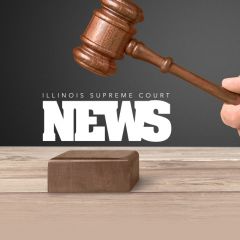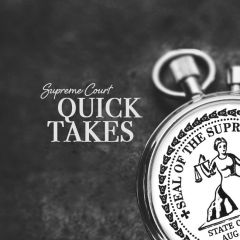Rule 317, Appeal as a Matter of Right
Getting to the Illinois Supreme Court is a long shot. In any given year, the Supreme Court receives more than a thousand petitions for leave to appeal under Illinois Supreme Court Rule 315, notes Charles Insler in his May 2021 Illinois Bar Journal article, “Rule 317, Appeal as a Matter of Right.” From those thousand-plus petitions, the Court will allow leave to appeal in roughly 50 or 60 cases—about half of which are criminal and the other half civil. During the past five years, the odds of making it to the Supreme Court have ranged from one in 20 to one in 25. But what about Rule 317? The first part Rule 317 is clear and provides for automatic review in the Supreme Court when an appellate court has invalidated a state or federal statute. The second part of Rule 317, however, is less clear; but it provides an intriguing source for an appeal, as of right, to the Supreme Court, Insler explains.





